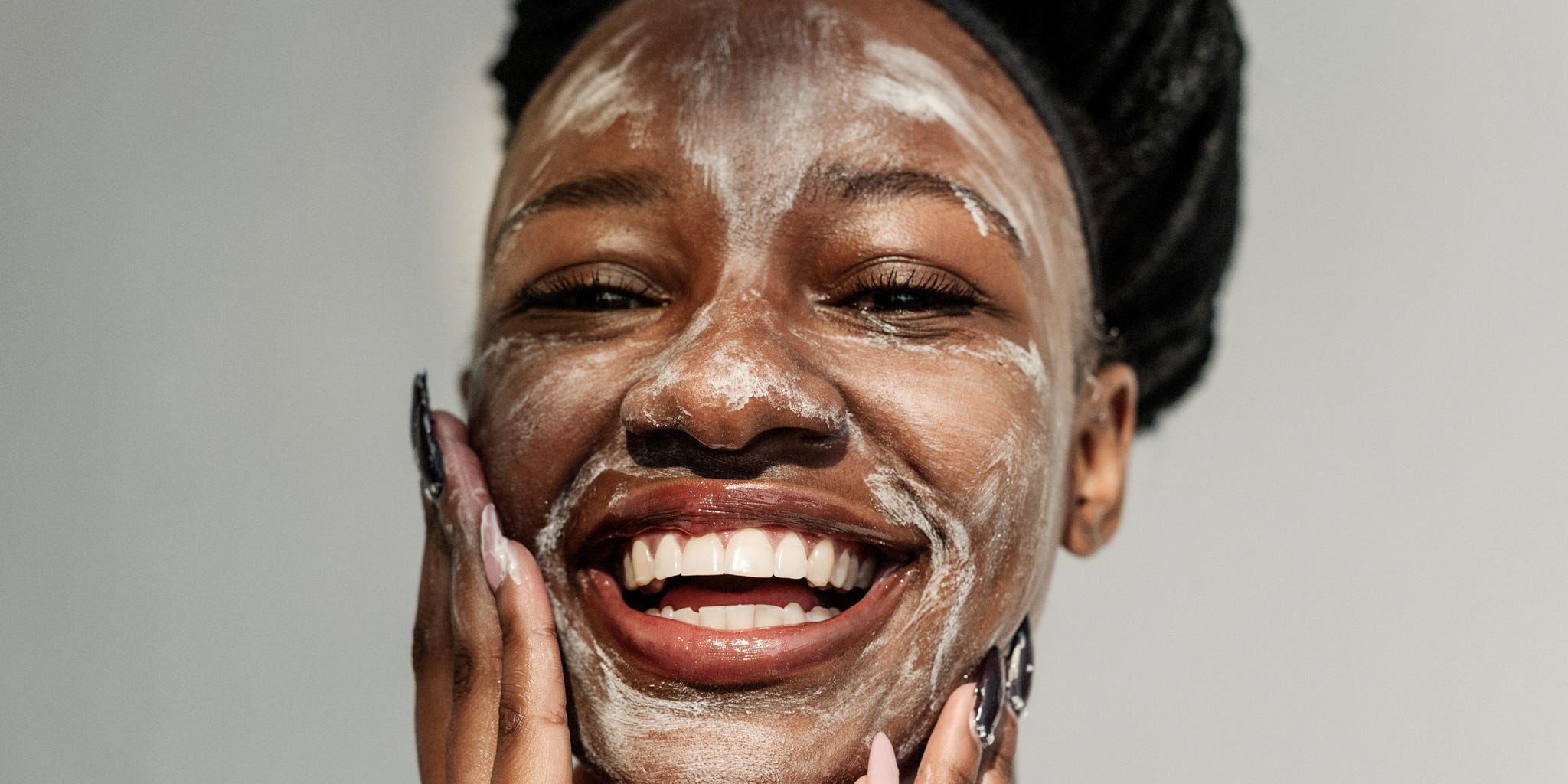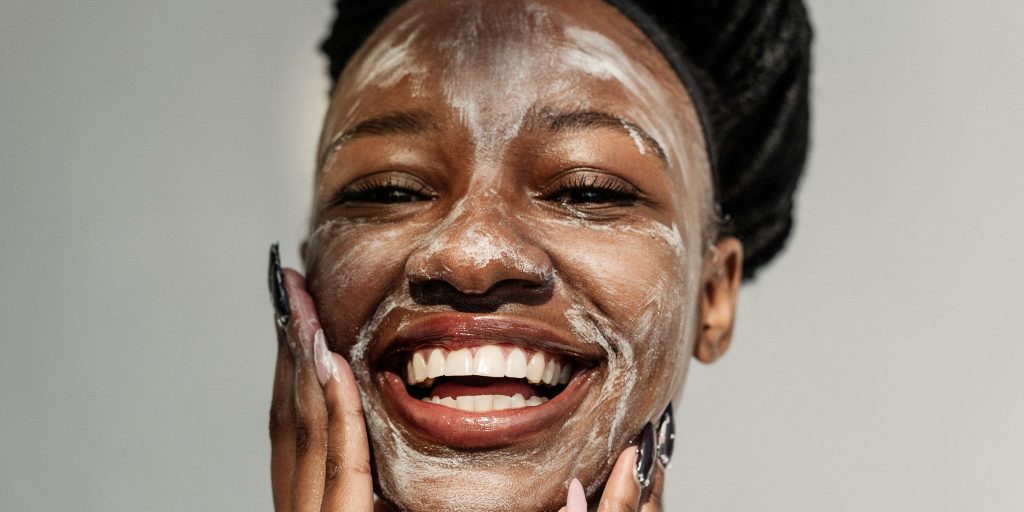
juliememe/Getty Images
- Turmeric can benefit your skin by helping to treat acne and hyperpigmentation.
- It may also have anti-aging properties because it contains the antioxidant curcumin.
- To make a turmeric face mask, mix honey, milk, and turmeric and leave it on for 15 minutes.
- Visit Insider's Health Reference library for more advice.
If you're looking for a natural way to improve your skin's health, one option to try is turmeric, whether you're using it topically or taking it orally.
Turmeric is a plant that's been used medicinally for everything from infections to skin conditions for about 4,000 years.
The main compound in the plant is curcumin, which is what gives turmeric its distinctive golden color.
Curcumin has anti-inflammatory, antioxidant, and antimicrobial properties that allow turmeric to be useful for skin concerns ranging from acne to skin cancer.
Here are five benefits of turmeric for skin, as well as how to use it.
1. May improve acne
One of the main causes of acne is bacteria, says Geeta Patel, DO, board-certified dermatologist at River Oaks Dermatology.
The curcumin in turmeric has antimicrobial properties, which means it can help fight pimple-causing bacteria and viruses.
A 2013 study conducted on pig ear skin found that curcumin (mixed with lauric acid) can inhibit the growth of propionibacterium acnes which is a type of bacteria that causes acne.
While human studies on the acne-fighting properties of turmeric are limited, it doesn't necessarily hurt to try and see if this home-remedy works for you.
Patel suggests making a DIY face mask consisting of turmeric, milk, and honey.
Mix this up and leave it on for 15 minutes.
2. May have anti-aging properties
The curcumin in turmeric acts as an antioxidant, which means that it can combat free radicals.
Polyphenols such as curcumin are full of antioxidants which help prevent the breakdown of collagen, Kappel says. Collagen is responsible for maintaining the skin's structure and elasticity - so preserving collagen may help delay signs of aging.
Kappel recommends taking 500 to 15,000 milligrams of turmeric orally daily to allow for your gut to absorb the curcumin and experience this benefit.
3. May be beneficial for skin cancer
The antioxidant and anti-inflammatory properties of curcumin may help prevent cancer. In fact, curcumin is one of the most commonly studied ingredients for cancer prevention.
This is because both oxidative stress and chronic inflammation are both risk factors for developing cancer. Additionally, a 2020 review found curcumin can inhibit carcinogenesis - the formation of cancer - and can also inhibit the growth of tumors.
A 2015 in vitro study found that curcumin can induce cell death of human melanoma cells, which are responsible for skin cancer. Additionally, it found that the substance can prevent the melanoma cells from multiplying, too.
Again, if you're looking to experience the antioxidant effects of turmeric, you should consume it orally, says Kappel. Moreover, don't let turmeric replace any medications or lifestyle changes your doctor has advised for cancer treatment.
4. May help reduce hyperpigmentation
The curcumin in turmeric has been shown to inhibit the activity of an enzyme called tyrosinase, Patel says, which is necessary for melanin (skin pigment) production.
"This suggests that regular topical applications of turmeric may gradually lighten skin. Over time, as darker skin cells are naturally exfoliated, they would be replaced by cells that represent one's natural skin color," says Patel.
A 2010 study found that turmeric extract mixed with niacinamide is more effective at reducing facial hyperpigmentation than niacinamide alone.
To get this benefit, Patel suggests applying a DIY turmeric face mask once or twice a week. The mask can be made from turmeric, milk, and honey, and you should leave it on for 15 minutes at a time.
5. May help soothe certain skin conditions
Thanks to its anti-inflammatory properties, curcumin may help relieve symptoms of skin conditions such as psoriasis and eczema, also known as atopic dermatitis, says Kappel.
A 2018 review found that curcumin can help improve symptoms of psoriasis and benefit overall skin health by reducing inflammation, preventing oxidative stress, and improving the skin barrier.
Additionally, a 2016 systematic review found that turmeric was more effective at relieving skin conditions such as atopic dermatitis compared to a control group.
Kappel suggests consuming turmeric so it can be absorbed by your body.
Insider's takeaway
Ultimately, more research -- including larger scale, human studies -- is needed to determine just how powerful turmeric may be for skin health. But the evidence we do have so far is promising.
According to the National Center for Complementary and Integrative Health, consuming turmeric or using it topically is generally considered to be safe, however, high amounts may be unsafe during pregnancy or breastfeeding.
If you aren't sure if turmeric is right for you, consult with your primary care doctor or dermatologist.
